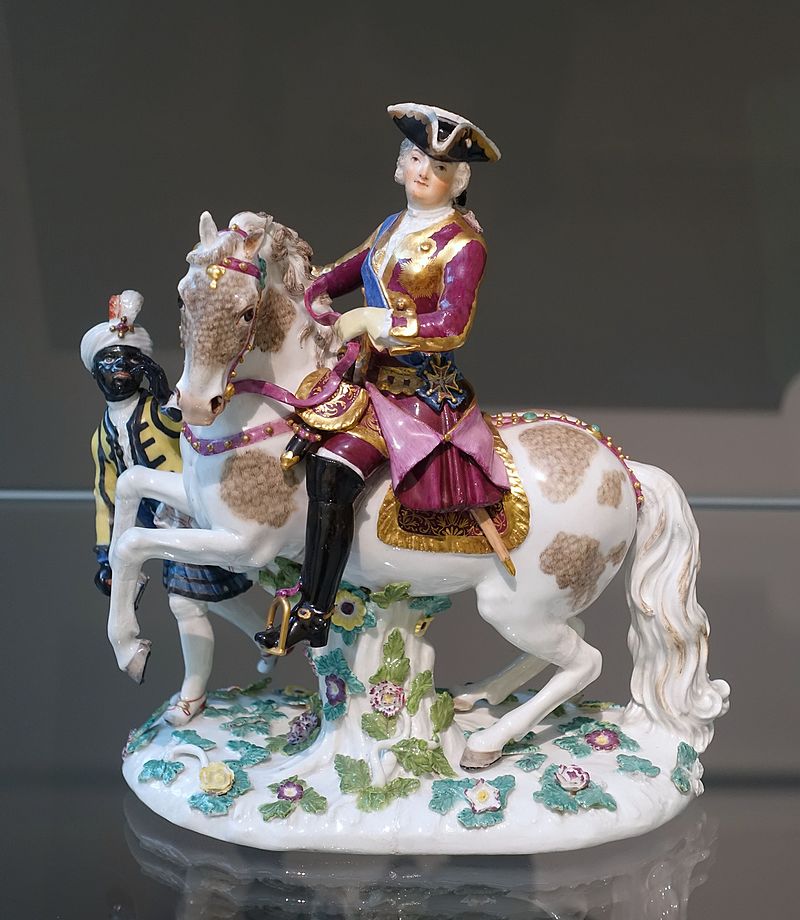johann joachim kändler (1706 - 1775)

Johann Joachim Kändler was a German sculptor and porcelain artist best known for his role in transforming European porcelain, particularly through his work at the Meissen porcelain factory. His sculptures and figurines, characterized by their natural motifs and intricate details, significantly impacted the porcelain industry.
Kändler's early works often depicted elements from nature, with his bird sculptures—such as those of jays and woodpeckers—being particularly notable. As his career evolved, he delved into smaller decorative figures, such as those from the "Swan Service," a collection of detailed and delicate porcelain pieces. Kändler also drew inspiration from the commedia dell'arte, a popular form of theater, creating vibrant figurines that captured the spirit of this genre. His "Monkey Band" from 1753 is an enduring piece still celebrated today.
Throughout his career, Kändler produced over a thousand different items, many of which are now considered timeless masterpieces in European porcelain art. You can find his works in museums and galleries, such as the British Museum, Seattle Art Museum, and The Metropolitan Museum of Art. Some pieces are even available for auction or sale, often fetching high prices due to their rarity and artistic significance.
If you'd like to learn more about Johann Joachim Kändler or stay updated on related sales and auctions, you can subscribe to our newsletter for timely information and insights into his works.


